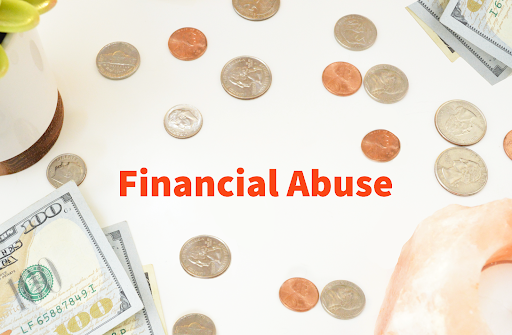Financial Abuse, Impact, and Help
Financial abuse, also known as economic abuse, is when an abuser controls, exploits, or sabotages a victim’s economic resources to manipulate and entrap them. Financial abuse is one of the most common forms of abuse and is hard to detect. According to the Center for Financial Security, 99% of domestic violence victims experience some form of economical abuse.
Common Forms Financial Abuse
Abusers use many tactics to economically abuse their victims. Some of the most common forms include career and academic sabotage, coerced debt, limiting access to funds, and destruction or refusal of resources.
Career & Academic Sabotage
Career or academic sabotage is used to prevent the victim from earning money or getting an education. This form of abuse makes it hard for victims to hold on to a job or pursue their personal goals. Some ways abusers will sabotage your career is by:
- Consistently making you late for work or class
- Prohibiting you from going to work or school
- Sabotaging job and academic opportunities
- Taking away your time to do work
- Interfering with job performance
- Harassing you at work or school
- Demanding you to quit your job or education
Career and academic sabotage are common in both domestic violence cases and teen dating violence. This form of financial abuse makes it extremely difficult for victims to gain the knowledge, resources, and experience needed to be economically independent.
Coerced Debt
Coerced debt is when an abuser makes unconsented credit-related transactions. This form of financial abuse is often the most invisible but has the most long-term effects. Some forms of coerced debt include:
- Using your personal information to open lines of credit (also known as identity theft)
- Using your credit card without your consent to make purchases
- Forcing you to give them your credit card, ATM, or banking information
- Forcing you to cosign or obtain loans
- Racking up debt in your name with no plans to pay you back
- Stealing money from your account or forcing you to withdraw money
- Refinancing your car or mortgage payment without your knowledge
Since this form of economic abuse is done without the knowledge of the victim, it’s harder to detect. Get a copy of your credit report to discreetly see any money discrepancies. Coerced debt can lead to a low credit score which can have a long-term impact on your ability to obtain credit cards, loans, and housing.
Limited Access To Funds
Abusers often limit a victim’s access to existing funds. They will withhold, steal, or control your money to entrap and manipulate you. Some ways in which they will limit your access is by:
- Controlling how much money you’re allowed to spend
- Making financial decisions on your behalf
- Punishing you for spending your own money
- Taking away your credit, debit, or ATM card
- Forcing you to put your abuser’s name as owner of big assets
- Blocking access to your own accounts
Limiting access to funds makes it hard to leave the relationship and keeps you in the dark about your own financial health. This can create unexpected financial situations when you decide to leave the relationship.
Destruction & Refusal of Resources
Destruction and refusal of resources can happen during or even after the relationship. This form of economic abuse happens after financial control has been established. Some common ways abusers will take away your resources include:
- Refusing to pay child or spousal support
- Destroying your personal belongings
- Damaging your valuable assets
- Withholding food, medications, shelter, and other necessities
- Refusing to give you access to your accounts and personal documents
Your financial information is personal. By no means are you required to share account details with your significant other. Listen to your gut, establish genuine trust, and keep a lookout for red flags. Knowing the warning signs mentioned above can help you detect abuse in your relationship before it gets more severe.
Impact of Financial Abuse
Financial instability is one of the main reasons victims return to their abusers. Often, victims are faced with the choice of staying with their abuser or potentially facing poverty and homelessness because they’re deprived of the resources needed to live a sustainable life. This can trap a victim in an unsafe environment and prevent them from seeking the life they deserve.
Amending Financial Abuse
Education is power. YWCAAZ offers a financial education program that will give you the knowledge to assess and manage your financial situation.
Consider staying at a temporary home, whether it be a trusted loved one’s or a shelter, to save money while you assess your situation. Take the time to find a source of income and pay off your debts. Paying off your debts will boost your credit score, increasing your chance of finding an apartment or meeting the requirements for a mortgage. It might be worth considering loan options for lower credit scores, such as FHA loans, which are backed by a government administration. You may feel like you’re stuck in this relationship, but remember there are solutions and people here to help you.
Although we’re specifically talking about domestic violence cases, financial abuse can happen to anyone and can be committed by anyone. It’s always important to check in on your finances and check up on your loved ones. Financial abuse is a serious matter, but by spreading knowledge on the topic we can help put a stop to it.

